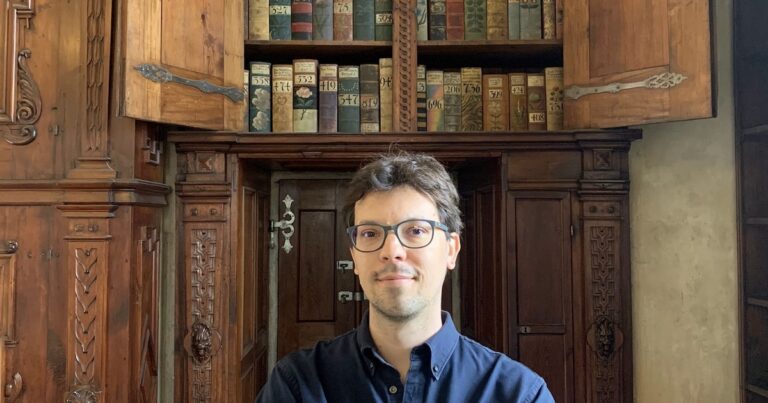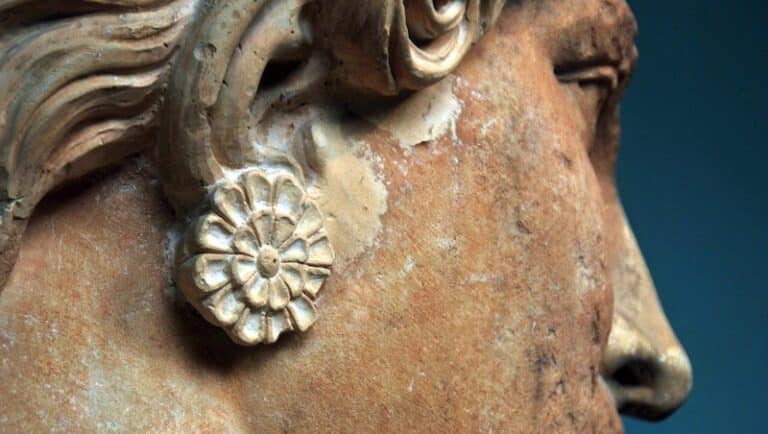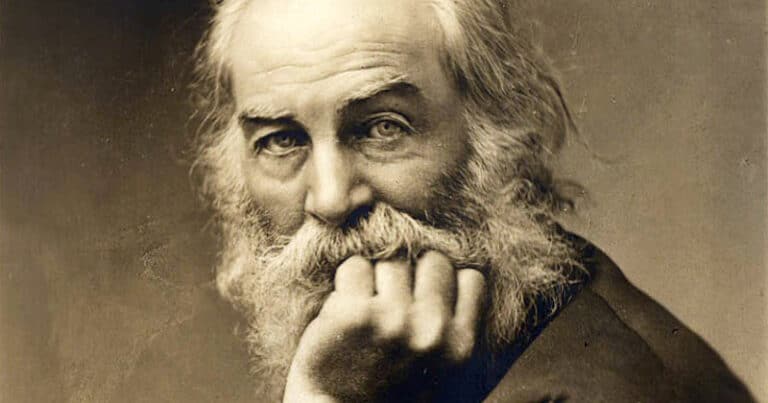For our themed column on Pavese’s contemporary critique, Iuri Moscardi interviewed Giancarlo Pontiggia, author of recent «Quel che è stato sarà». Un commento ai Dialoghi con Leucò di Cesare Pavese.

In the introduction to «Quel che è stato sarà» you wrote that you were struck in your young age by Dialogues with Leucò and August Holiday, two of the least fashionable of Pavese’s books. What aspects captured your attention at such a young age where – as you wrote in the introduction – the value of the book was not completely clear to you?
At the end of the 1960s, Pavese was a very popular author, mainly read through a civic and political perspective. I remember when, for my high school final exam in July 1971, I prepared a study on Pavese’s work centered on the Dialogues with Leucò, but my professors kept switching their focus on novels such as The Political Prisoner, The Comrade, The House on the Hill, and of course The Moon and the Bonfires. Among others, I had read the essays on Pavese by Furio Jesi, collected in the volume Letteratura e mito, and I considered the professors’ choices as strange, if not suspicious. But, at that time, Pavese was an icon of the politically active literature, and his Dialogues were considered as a sort of embarrassing bump in the road. As we now know, Pavese’s interest in mythology came from afar and pervaded a large part of Pavese’s poetical and narrative universe. But at that time the most common interpretation of Pavese was through the perspectives of Naturalism, Verismo, even Neorealism, which Pavese himself during the last years of his life was unsuccessfully trying to distance from. Nevertheless, carefully reading some pages from the Mestiere, or the last section of August Holiday, or the beautiful pages from The Devil in the Hills would suffice to understand the deepest sense of Pavese’s search, which Jesi had precisely determined in his essays. When I read Pavese, and not only his Dialogues, I felt something around the narrative content which brought me back to the world of tragic writers, Mysteries, Orphic philosophies, and late Plato. It was something that I could have never found in any other great 20th century Italian writers. Although he wrote and worked in the heart of the Italian publishing industry, Pavese always remained a secluded writer to look at with some perplexity. Maybe, the reason of the charm that Pavese had on us young boys, born when the author of the mysterious Dialogues with Leucò had already left this world, exactly resided in his secret resistance to the imperative trends of the militant journals, to political ideologies, to the debates on the destiny of literature, and in his obstinate will of penetrating into the deepest and often contradictory reasons of the poetic work. For the way in which it happened, his death immediately appeared to us as rich in sacrificial and prophetic signs, like an allusion to a future in which literature would be the object of falsifications and misinterpretations.
In the introduction you also wrote that you and other young people like you felt that, in the Dialogues, “life and the real sense of poetry itself were at stake”. How much did the Dialogues influence your poetry and how much of your poetry influenced this comment of the Dialogues?
The idea that the Dialogues are above all a book of poetry comes from afar and belongs to the years when I discovered the entire work of Pavese. At that time, I had already read Rimbaud’s Illuminations and Baudelaire’s Le Spleen de Paris: I knew that it could be possible to write poetry beside the use of verses. But the poetical strength of the Dialogues went way beyond the question of the prose, its accentuated rhythmic values, or the dense repetition of refrains which Pavese might have learned from the poems by Homer. I thought that this strength was related to the essence itself of inspiration and vision. The truth is that only poetry – considered not as a form but as an idea of the world – can develop a strength similar to the one we read in the Dialogues or in some proses from August Holiday. The Corn Field [one of the short stories collected in August Holiday and the inspiration for Pavese Festival 2023’s theme, editor’s note] is all centered around a swish of dry stems moving in the air and the “remote conversations” arisen in the protagonist’s heart by that swish. Images, sensations, epiphanies. The same happens in the pages from The Vineyard, or the incredible incipit of Secret Story, with a road “arising towards the clouds” [other two stories from August Holiday, editor’s note]. In those stories there is always a boy, someone who keeps remaining alone in the vineyard or under a porch, hidden in the hideouts of a more archaic memory, like the puer aeternus elaborated by Jung. Those intuitions always remained in me as something decisive, that a very attentive reader might find in some of my poems from Con parole remote or Bosco del tempo. After all, remote is a very frequent term in August Holiday. A lot of the great Italian poetry from the 20th century, which I identified with, resides in that remoteness.
One of the most isolated voices of his generation: this is how Pavese defined himself as a poet. How do you consider today’s studies of Pavese as a poet? How influential are they in defining the contemporary idea of Pavese, who was not only a poet but also a novelist?
I am not a scholar of Pavese, although I have read the majority of the critical studies about him: so, I do not have a thorough vision of this bibliography. Nevertheless, I see the same misinterpretations from the past still persist. The recent editions, published by Aragno, of Taccuino segreto (The Secret Notebook) and of Pavese’s translations of Nietzsche’s Will of Power rely on political arguments, renewing the accusations of being decadent and irrational that were pronounced by Moravia more than half a century ago. Keeping this perspective today is a mistake, which might be excused – if we want to be extremely generous – only at the time of the Cold War. The great literature was not born to certify ideological or political affinity. Its logic is long-lasting; in its highest expression it is always characterized by a mythological content; it must express the vastness of the cosmic movements, the weight of the skies tilting the world and, consequently, the human spirit. Consider what would happen if we applied sociological or political parameters while reading great classics. Someone could judge Vergil’s Aeneid and Horace carmina as too unbalanced towards Augustus politics. I studied at the State University of Milan in the 1970s, when you might witness the Student Activist Movement contest a professor accused of reading the Comedy by Dante, whom they considered a reactionary poet. Luckily for us, Mondadori recently published a volume edited by Antonio Sichera and Antonio Di Silvestro [which I interviewed for this column, editor’s note]. They successfully described the sense and meaning of Pavese’s long journey, often contradictory and magmatic, within the body of poetry. In their work, a fundamental role was played by Pavese’s translations from modern and classical languages and his huge work at the Einaudi publishing house, which Pavese carried out with freedom, perspicacity, and even irony. I also see that the poems from Verrà la morte e avrà i tuoi occhi, which many scholars in the past considered as a move back from his previous work, are today read as a continuation of Pavese’s early poems. This is confirmed not only by the book by Sichera-Di Silvestro but also by the recent afterword by Giovanni Tesio to the volume Donne appassionate. Poesie d’amore e morte (2022) in which the affinities between Pavese’s “poetry image” and Hermeticism are underlined.
You consider the Dialogues a work of poetry, to which you add “the necessary fantastical dimension”. Is it for this reason that you wrote a comment to them? Usually, comments are reserved to poetry.
You are right: comments are usually reserved to poetry, which presents a deeper stratification when compared to prose. To consider it carefully, this is another demonstration of the poetic substance of this book. My comments do not follow the final index but the chronological order of the composition of the texts: this allowed me to underline the deep connections – both imaginative and expressive – that always operate in a creative process, and that might not be intentional or controlled. They are like discontinuous, fantastic movements during which the writer is led by what he is writing, by the empirical turmoil of the inspiration, which is arbitrary and unpredictable.
Titles are never impartial. Why did you choose Quel che è stato sarà, which is used in both the Dialogues and Il mestiere di vivere to refer to the human impossibility to oppose destiny?
This sentence is endowed with a sort of undisputed cultural strength. The Dialogues originated from the will of detecting the deep laws of reality without diminishing the tragical substance of these discoveries, as it happened with the great Greek tragic poets – a model for the imagery of the Dialogues – and in Leopardi – another fundamental reference for Pavese’s poetry. For example, in The
Inconsolable, where the sentence that I chose as a title (in the variant “Ciò ch’è stato sarà”) appears since the first lines of the protagonist. Orpheus discovers his own destiny by looking for himself. Since that moment on, he can no longer come back, he can no longer believe that what was done can be undone nor illude himself that it is possible to break destiny with euphoria, which is a precise reference to the world of Mysteries. Violating a destiny, like defeating the night, is not possible. So, it is not a matter of optimism versus pessimism, but a process of entering into the real nature of things, the tragic human condition. As Sergio Givone wrote, “if all that is will be, a metaphysical condemnation weighs on the human being. Life is in the sign of death, which anticipates and marks it”. The Dialogues belong to a line of thought that goes from the Greek tragic to Leopardi, and from Leopardi to Pirandello and Montale: some of the greatest authors of the Italian literature.
“Un Pavese ci vuole”: this misquotation from a very famous passage from The Moon and The Bonfires was the title of a series of video-interviews I conducted with the director of Fondazione Pavese, Pierluigi Vaccaneo. Seventy-three years after Pavese’s suicide, do we still need him? And, whether yes or no, why?
We need the voice of great writers more and more. All the more, we need the voice of writers who devoted themselves to find a decisive word, valuable for writers and above all for readers. The cognitive effort pervading all of Pavese’s works, the courage of not avoiding the darkest zones of the human spirit, and nevertheless the awareness that no writer – if real – can write without the illuminating power of thought are the marks of Pavese’s research of an expression. His voice is even more necessary today, in a time that has been worn out by an ideological, oppressive, humiliating judgement of the social and cultural events. But, at the same time, we are also permeated by a subtle nihilism, which seems to subtract meaning and value to all we do, think, or read, as if every act was the same as another, as if a corrosive doubt extended over every object of our knowledge, whose final result is only the silence of word and the suspension of all judgement. On the contrary, in Pavese we can always feel the presence of a form of the truth, no matter how controversial: it is something that we feel also in our mistakes, when we fall down the deepest and most disturbing zones of the human psyche. Pavese believed in the detecting and clarifying power of the word and, as a consequence, in the civic nature of the literary research, which synthesizes language, imagination, and thought. It is almost an antidote to what is happening nowadays, almost everywhere in the world, which we could summarize this way: a thought that is increasingly overpowered by the fascinating trend of petty emotions; a softened and simplified language, as if writers have been shaping it on a non-existing language – the language of translations – renouncing the Dantean “glory of the language”; an imaginative strength increasingly surrendered to subjective obsessions. But Pavese will continue to speak to our consciences, at least until there are readers at his level.
An interview by Iuri Moscardi

Dialogues with Pavese: Tommaso Munari
For our themed column on Pavese’s contemporary critique, Iuri Moscardi interviewed Tommaso Munari, author of a recent essay on the history of Italian publishing.

Dialogues with Pavese: Sara Vergari
For our themed column on Pavese’s contemporary critique, Iuri Moscardi interviewed Sara Vergari, author of the essay Un “Pavese solo”.

Dialogues with Pavese: Lawrence Smith
For our themed column on Pavese’s contemporary critique, Iuri Moscardi interviewed once again Lawrence Smith, this time about his English translation of Cesare Pavese’s degree thesis.



